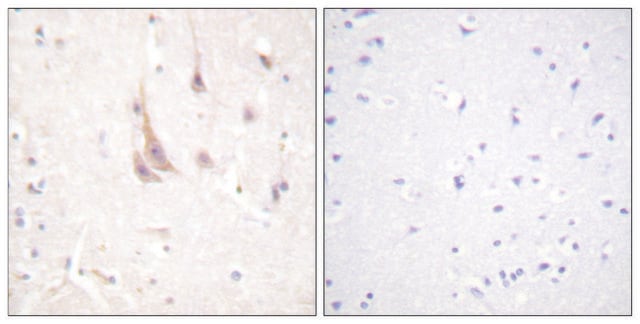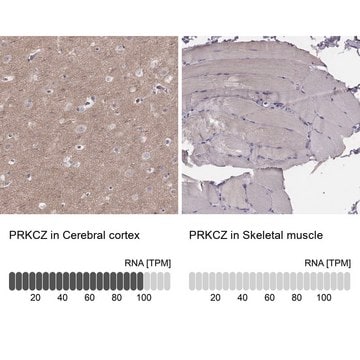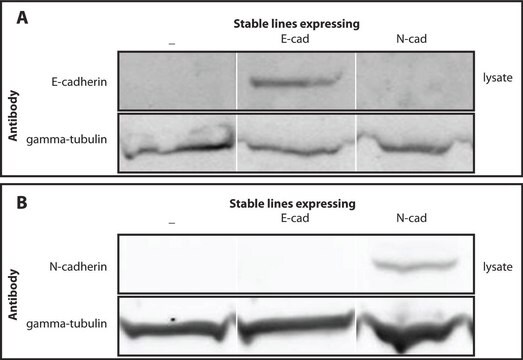MABC946
Anti-PKCζ Antibody, clone 14B12.3
clone 4B12.3, from mouse
Synonym(e):
Protein kinase C zeta type, nPKC-zeta, PKC-zeta, PKCζ
About This Item
Empfohlene Produkte
Biologische Quelle
mouse
Qualitätsniveau
Antikörperform
purified immunoglobulin
Antikörper-Produkttyp
primary antibodies
Klon
4B12.3, monoclonal
Speziesreaktivität
mouse, human, rat
Methode(n)
immunohistochemistry: suitable (paraffin)
western blot: suitable
Isotyp
IgG1κ
NCBI-Hinterlegungsnummer
UniProt-Hinterlegungsnummer
Versandbedingung
wet ice
Posttranslationale Modifikation Target
unmodified
Angaben zum Gen
human ... PRKCZ(5590)
mouse ... Prkcz(18762)
rat ... Prkcz(25522)
Allgemeine Beschreibung
Spezifität
Immunogen
Anwendung
Apoptose & Krebs
Apoptose - Weiterführende Produkte
Immunohistochemistry Analysis: A 1:250 dilution from a representative lot detected PRKCZ in human cerebral cortex, human cerebellum and mouse brain tissues.
Qualität
Western Blotting Analysis: 0.5 µg/mL of this antibody detected PKCζ in 10 µg of mouse brain tissue lysate.
Zielbeschreibung
Physikalische Form
Lagerung und Haltbarkeit
Sonstige Hinweise
Haftungsausschluss
Sie haben nicht das passende Produkt gefunden?
Probieren Sie unser Produkt-Auswahlhilfe. aus.
Lagerklassenschlüssel
12 - Non Combustible Liquids
WGK
WGK 1
Flammpunkt (°F)
Not applicable
Flammpunkt (°C)
Not applicable
Analysenzertifikate (COA)
Suchen Sie nach Analysenzertifikate (COA), indem Sie die Lot-/Chargennummer des Produkts eingeben. Lot- und Chargennummern sind auf dem Produktetikett hinter den Wörtern ‘Lot’ oder ‘Batch’ (Lot oder Charge) zu finden.
Besitzen Sie dieses Produkt bereits?
In der Dokumentenbibliothek finden Sie die Dokumentation zu den Produkten, die Sie kürzlich erworben haben.
Unser Team von Wissenschaftlern verfügt über Erfahrung in allen Forschungsbereichen einschließlich Life Science, Materialwissenschaften, chemischer Synthese, Chromatographie, Analytik und vielen mehr..
Setzen Sie sich mit dem technischen Dienst in Verbindung.








